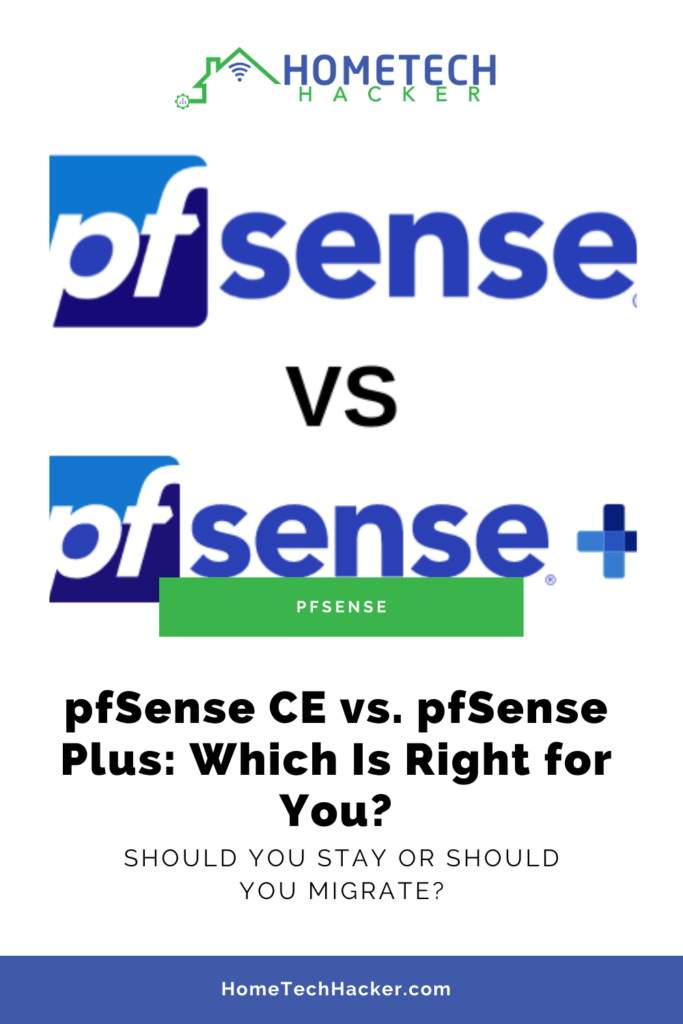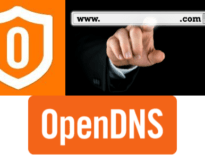
Last year, the maintainers of pfSense (Netgate) announced pfSense Plus. pfSense Plus is the productized version of pfSense that replaces pfSense Factory Edition (FE). Over time, it will diverge from pfSense Community Edition (CE) to have more and newer features. If you run pfSense CE right now, what does this mean for you? Which version should you be using? What are the differences? I will attempt to answer all of these questions in this article.
This page contains affiliate links. If you purchase an item using an affiliate link I will receive a small commission at no cost to you. Affiliates do not influence my recommendations. Read my disclosures for more information.
Table of Contents
Background
If you are reading this article, most likely you know what pfSense is. But just in case you don’t…
pfSense started as a free open source firewall and router that has many advanced features such as intrusion detection and protection systems, multi-WAN support, load balancing, and VPN capabilities. It can run in virtual machines and on custom-built and off-the-shelf hardware.
I’ve been running pfSense as my router software for years for many reasons. There are other good alternatives to pfSense, but I’m sticking with it for now.
How are pfSense CE and pfSense Plus similar?
The two products are similar in the following ways:
- They both have origins from the same codebase and are FreeBSD based.
- They are both shepherded by the same organization (Netgate).
- As of now, they have most of the same features, but this will change over the next few years.
How are pfSense CE and pfSense Plus different?
Right now they differ only slightly in functionality, but there are some key differences in licensing, support, and long-term vision:
- pfSense CE is open source, while pfSense Plus is proprietary.
- They have different hardware targets. While both can run on amd64 and x86-64 architectures, pfSense Plus can also run on the ARM architecture of some of Netgate’s official hardware. Netgate’s official hardware comes with pfSense Plus.
- As of pfSense CE version 2.6.0 and pfSense Plus version 22.01 only pfSense CE can be downloaded and directly installed on your own hardware. You can, however, upgrade/migrate to pfSense Plus 22.01 from pfSense CE 2.6.0.
- Netgate will focus their new feature, improved architecture, and UI development on pfSense Plus. While some new features may show up in both versions, many, if not most, will only be in pfSense Plus.
- pfSense CE does not have any official support channel that you can purchase from Netgate. pfSense Plus does have support.
- pfSense CE is free to use for personal or commercial use on your own hardware so long as you keep the license file intact and follow the other Apache 2.0 license rules. pfSense Plus requires a subscription from Netgate and is only free for home or lab use.
- Versioning and update cycles for the two products differ. pfSense CE will continue its versioning format and will not follow a predefined release schedule. pfSense Plus will follow the ‘year.month’ release numbering convention and will have planned releases three times a year (January, May, and September).
Which version should you run?
The version you should run is the subject of a lot of debate online. Proponents of staying with pfSense CE cite the following reasons:
- It will stay open source.
- They are worried pfSense Plus eventually will charge for home use, or cripple the home use version.
- Netgate currently doesn’t provide a binary to install pfSense Plus on custom hardware. You must install pfSense CE and migrate.
Proponents of migrating to pfSense Plus say:
- This is where all the new features and fixes will be first (and maybe the only place).
- They believe pfSense CE will eventually be unmaintained and only receive minor updates in the future.
- They trust that Netgate will always provide a free version for home use.
I think it comes down to what you believe Netgate will do in the future, and how much you want the newer features that are coming. Also, whether or not you want your router software to be open source.
Editor’s Note: Well, as some have feared, Netgate has ended the pfSense Plus Home+Lab version (the free version of pfSense Plus. I recommend going with CE if you want to use pfSense for home for free and use your own hardware. You can also check out these pfSense alternatives.
I plan to wait it out a bit. I will upgrade to pfSense 2.6.0, but not migrate to pfSense Plus… yet. Right now, the feature differences are minimal and I want to wait a little more and see what happens.
Final thoughts
For additional explanations and resources about pfSense Plus and pfSense CE check out:
Also, don’t forget, there are great alternatives to pfSense.
Are you staying with pfSense CE or moving to pfSense Plus? Let me know on Twitter or in the comments below.
Interested in supporting HomeTechHacker?
Have you found the content on this site useful? If so, are you interested in supporting me and this site? There’s no obligation of course, but I would really appreciate any support you can give. Below are a few ways you can show support:
- Share this site with your friends and on social media (use the sharing links at the end of this page for your convenience)
- Subscribe to this site
- Purchase one of my books, The Personal Cybersecurity Manual, The Home Network Manual or The Smart Home Manual, for yourself or as a gift
- Put a link to HomeTechHacker on a site you have access to. Be sure to let me know about it!
- Enroll in HomeTechHacker Academy for free and premium online home technology courses.
- Reach out to me via my contact page or Twitter and let me know something I should write about
- Shop at Amazon through my affiliate links and ads on these pages. See my disclosures for more details about affiliate links. You can also just shop from one of the links below:
- HomeTechHacker Shop: This is a listing of products that I use, have reviewed, and that I recommend
- HomeTechHacker Technology Advisor: This suite of tools will give you customized home technology product recommendations based on your needs
- My Amazon affiliate link: Just click on this link to go to Amazon and shop
Thank you! I really appreciate it!


